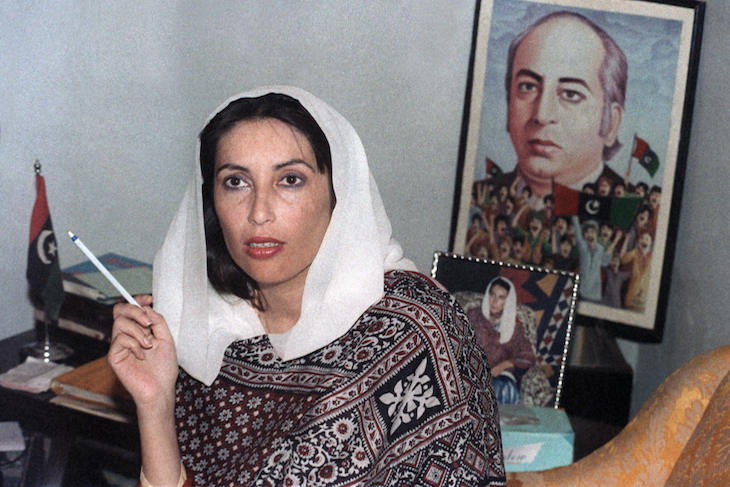Now here’s a series that would make a brilliant podcast but is also classic Radio 4 — they don’t have to be mutually exclusive. In fact, why can’t podcasts be more like Radio 4? Programmes where the presenter’s role is to draw out the knowledge of experts, and the pace is measured, allowing the fascination of what’s being revealed to make an impact before leaping on, and where there’s no background music except when it adds to the timbre, the meaning, the purpose. Each episode of Classified Britain (produced by John Forsyth) is only 15 minutes long, so not too demanding of one’s time, and yet a lot of information is packed into that slot without it seeming too hectic or over-enthusiastic.
It takes us back to the days when news could only be gleaned from the newspapers and to advertise meant taking out space on the front page of the local rag. As James Naughtie reveals, these classified ads brought together the whole of human life, get-rich-quick schemes in one column, bankruptcy notices in the next. They were how the papers were sold; the news could only be found inside. This week he focused on a single edition of the Newcastle Journal from 1 October 1842. On that front page, more than 100 ads were squeezed into six tightly set columns, offering for sale 420 dozen smoked ox tongues just arrived on Tyneside from Archangel in Russia, alongside two handsome greyhounds, a steam engine, and embroidered waistcoats that could be made up for you in less than five hours.
Here’s paper proof of Newcastle’s boom time at the heart of the industrial revolution. Not just a commercial centre, though. Also advertised was a course of lectures in chemistry at the Literary and Philosophical Society, designed not just for self-improvement but also the dissemination of new ideas. On the same page, an aspiring dentist announces that he intends to set up business for ‘the nobility and gentry’ of Newcastle, scaling, extracting and providing ‘natural’ teeth. Naughtie had to call on an expert to explain the ‘natural’. Such teeth, we discover, were cut out from the corpses of soldiers lying inert on the battlefields of Europe and America. They were sold to dentists, who cut off the roots and then fastened them on to primitive dentures, which were much in demand at a time when to have your teeth out was often a 21st birthday present or the gift to a bride on her wedding day. Ads online just don’t carry the same freight.
In contrast to Naughtie’s programme, The Assassination (produced by Neal Razzell) began life as a ten-part podcast and has been such a success that it’s now been remodelled for broadcast on Radio 4. The World Service reporter Owen Bennett-Jones tells the story of his ten-year search for the killers of Benazir Bhutto. It’s quite different in tone from the standard factual documentary, short, sharp episodes, more frenetic and dramatic. But it is compulsive listening and because it was originally a podcast it’s possible to binge on all ten episodes at once.
Bennett-Jones really knows his stuff, having first met Bhutto 20 years ago when he was reporting from Pakistan. He was on the plane with her when she flew back to Karachi from exile in Dubai. He followed her as she processed through the streets, gathering a massive crowd around her campaign bus (she was seeking election as leader of the opposition Pakistan People’s Party) and witnessed the bomb blast on that first day which killed 180 of her volunteer security guard. He knew then ‘her days were numbered’ and a few weeks later she was shot dead by a 15-year-old suicide bomber. But still he wants to find out who was behind the killing, and he makes us want to find out too.
Only on the BBC would anyone attempt to turn Karl Marx’s theoretical analysis of commerce and the individual, Das Kapital, into a Radio 4 play. I must confess I would not have rushed to hear it on Saturday afternoon if I had not been intrigued to read in Radio Times that it was an ‘ultimately heartbreaking’ production. I’m not sure I would go that far but it was a really clever dramatisation by Sarah Woods (directed by James Robinson), interweaving gobbets from Marx with an up-to-date storyline set in a digital studio where Sasha is struggling to come up with a snappy new app based around Marx’s hugely influential text. She begins to recognise a remarkable relevance to his warnings about the commodification of labour, the gulf between the product and those who make it. Do we ever stop to think as we check our phones endlessly through the day about the hundreds of people involved in making it? Do we ever wonder about how much it actually costs to make, what the workers are paid, and who gets the profit?
Marx’s logic is translated to the Congo and the story of Delphin and his father who mine the cobalt used in the batteries so vital to digital life. An eight-year-old works all day in dangerous conditions to collect the cobalt that keeps you in touch. It’s Marx brought to life in an unexpected way.






Comments